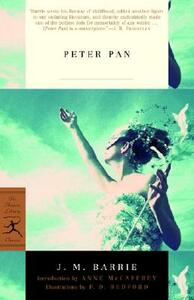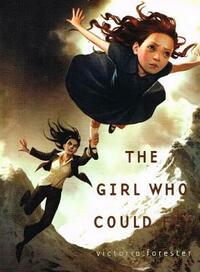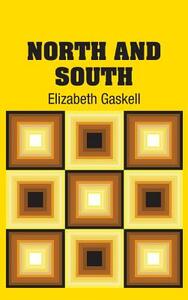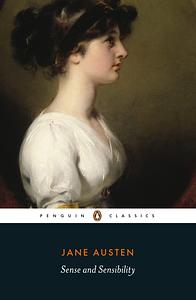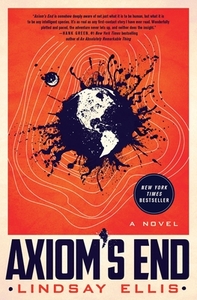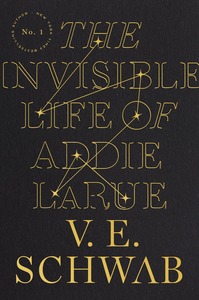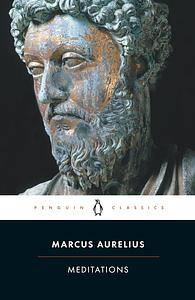Take a photo of a barcode or cover
toggle_fow's Reviews (1.05k)
This book is FULLY uncanny valley.
When you step back and try to look at it with a brain that has never heard any Peter Pan mythos before, it's easy to see why it became a classic. There's so much pure imagination here. And there are several gems of childhood encapsulated, like the scene at the beginning where John and Wendy are playing house, or the part where John and Michael will only agree to become pirates if they can also "remain respectful subjects of the king."
Then, you have everything else. Some of this, while uncanny, makes it more compelling -- like the widespread slaughter that seems to go on in Neverland as a matter of course, and Tinker Bell's overt swearing and attempts at murder. This is a book for children, right? Then there's the one-sided romance between Peter and Wendy, while we are still completely unaware of how old at least Wendy is (since Peter is seemingly immortal).
Then there's the fey, amoral nature of Peter himself:
Overall, the impression is deeply eerie. All of this combines to make the experience of reading extremely weird but also like... spellbinding? You have to keep reading if only to find out WHAT the hell is going on.
And finally, you have the racism, which... wow.
The natives are literally called the "Picanniny Tribe," which I guess was supposed to be a joke? There's some talk about their "savage" natures, average caricature stuff, and then there's an exchange after Peter saves Tiger Lily which, UH. The natives speak in broken English, the horrible cringy nature of which I cannot accurately describe to you and don't choose to reproduce here. And after they ally themselves with the Lost Boys, they call Peter Pan "the Great White Father."
Yeah. This does not make anything more compelling. It's more like a slap in the face to an unsuspecting reader, and it doesn't help that nearly the entire tribe is massacred shortly after.
When you step back and try to look at it with a brain that has never heard any Peter Pan mythos before, it's easy to see why it became a classic. There's so much pure imagination here. And there are several gems of childhood encapsulated, like the scene at the beginning where John and Wendy are playing house, or the part where John and Michael will only agree to become pirates if they can also "remain respectful subjects of the king."
Then, you have everything else. Some of this, while uncanny, makes it more compelling -- like the widespread slaughter that seems to go on in Neverland as a matter of course, and Tinker Bell's overt swearing and attempts at murder. This is a book for children, right? Then there's the one-sided romance between Peter and Wendy, while we are still completely unaware of how old at least Wendy is (since Peter is seemingly immortal).
Then there's the fey, amoral nature of Peter himself:
• Forgets who people are if they're not immediately before him. At the end of the book, he has even forgotten Tinker Bell.
• Genuinely believes anything he says is true, even to the point of "make believing" things like dinner and other people.
• Does great exploits, but "...it was his cleverness that interested him and not the saving of human life." Sociopath, or average child? Opinions are divided.
• It's implied that he kills or otherwise disposes of Lost Boys as they seem to be growing up.
Overall, the impression is deeply eerie. All of this combines to make the experience of reading extremely weird but also like... spellbinding? You have to keep reading if only to find out WHAT the hell is going on.
And finally, you have the racism, which... wow.
The natives are literally called the "Picanniny Tribe," which I guess was supposed to be a joke? There's some talk about their "savage" natures, average caricature stuff, and then there's an exchange after Peter saves Tiger Lily which, UH. The natives speak in broken English, the horrible cringy nature of which I cannot accurately describe to you and don't choose to reproduce here. And after they ally themselves with the Lost Boys, they call Peter Pan "the Great White Father."
Yeah. This does not make anything more compelling. It's more like a slap in the face to an unsuspecting reader, and it doesn't help that nearly the entire tribe is massacred shortly after.
When I first read this book, I LOVED it.
Stephanie Meyer (??) had it extremely right in the quote on the front of my copy when she called it a mix between Little House on the Prairie and X-Men. The only thing missing is that it's got a liberal dash of fairy-tale cuteness stirred in.
When I was younger, the fact that kindness could almost be a superpower really struck me. It was a new concept. I had never thought of anything that way before. She can fly, but Piper's positivity and open-heartedness are what really drive the heart of this book. I love her and Conrad's dynamic, and Conrad as his own character is fabulous too.
On this re-read, I'm sad to say it doesn't hold up as well as I hoped.
When I was a kid I felt like this book straight up knocked me flat on my back. Now, the simple story and lack of realism does take a little bit of the shine off, but I'm keeping the rating because it reflects my opinion when I was closer to the book's target audience. I still think that Conrad and Dr. Hellion are extremely well-done, complex characters for the type of book this is, and that the message is a powerful one. (And easier to swallow here than from Pollyanna.)
Stephanie Meyer (??) had it extremely right in the quote on the front of my copy when she called it a mix between Little House on the Prairie and X-Men. The only thing missing is that it's got a liberal dash of fairy-tale cuteness stirred in.
When I was younger, the fact that kindness could almost be a superpower really struck me. It was a new concept. I had never thought of anything that way before. She can fly, but Piper's positivity and open-heartedness are what really drive the heart of this book. I love her and Conrad's dynamic, and Conrad as his own character is fabulous too.
On this re-read, I'm sad to say it doesn't hold up as well as I hoped.
When I was a kid I felt like this book straight up knocked me flat on my back. Now, the simple story and lack of realism does take a little bit of the shine off, but I'm keeping the rating because it reflects my opinion when I was closer to the book's target audience. I still think that Conrad and Dr. Hellion are extremely well-done, complex characters for the type of book this is, and that the message is a powerful one. (And easier to swallow here than from Pollyanna.)
FINALLY some GOOD SOCIAL COMMENTARY.
First of all, the pining in this book? Superb. A delicacy of its kind. And can I just say, that the reason why this is so is because of how much of the book gives you MR. THORNTON'S PERSPECTIVE. Most of it is about Margaret, but compared to every other similar book where the Darcy/Knightley/whoever figure is just there and you essentially have to guess at every single thing they might be thinking or feeling until the denouement... the pieces of Mr. Thornton's perspective we are shown all along build the tension so well.
Other than that, the social commentary. I'm not sure if Margaret is just really confused about social class or if it's the Victorian Era and We Are All Confused About Social Class. Like, does being rich make you high-class? Margaret is judging Mr. Thornton harshly as "shoppy" and a brute because he runs a company, but at the same time is inviting herself to "call on" a factory worker. Is a clergyman necessarily a gentlemen? If so, why? We are told nothing about Mr. Hale's pedigree, and he's certainly poor enough.
The whole first third of the book is just everyone looking down on each other for reasons that are incomprehensible, but very interesting.
I'm a big fan of the extremely long stretches of daily life that we get to live with Margaret, and the action! In what other same-genre book is there an outlaw in the family, and mob violence in the streets? The way that the proposal comes quite early and then after it's rejected, Margaret and Mr. Thornton each spend years separately growing as people in ways that have very little to do with each other... Fantastic.
The only downside is the ending. The whole meeting on trains going opposite directions thing from the miniseries is certainly romantic, but the book's ending could have been just as good if it weren't SNIPPED AT THE VERY ROOT. It just ends! They hardly even have come to an understanding and boom, that's it! They still don't even really know each other as people! They have so much to talk about! I can't believe the book spent so many words drawing everything out so well and then just tossed the ending in like an afterthought.
First of all, the pining in this book? Superb. A delicacy of its kind. And can I just say, that the reason why this is so is because of how much of the book gives you MR. THORNTON'S PERSPECTIVE. Most of it is about Margaret, but compared to every other similar book where the Darcy/Knightley/whoever figure is just there and you essentially have to guess at every single thing they might be thinking or feeling until the denouement... the pieces of Mr. Thornton's perspective we are shown all along build the tension so well.
Other than that, the social commentary. I'm not sure if Margaret is just really confused about social class or if it's the Victorian Era and We Are All Confused About Social Class. Like, does being rich make you high-class? Margaret is judging Mr. Thornton harshly as "shoppy" and a brute because he runs a company, but at the same time is inviting herself to "call on" a factory worker. Is a clergyman necessarily a gentlemen? If so, why? We are told nothing about Mr. Hale's pedigree, and he's certainly poor enough.
The whole first third of the book is just everyone looking down on each other for reasons that are incomprehensible, but very interesting.
I'm a big fan of the extremely long stretches of daily life that we get to live with Margaret, and the action! In what other same-genre book is there an outlaw in the family, and mob violence in the streets? The way that the proposal comes quite early and then after it's rejected, Margaret and Mr. Thornton each spend years separately growing as people in ways that have very little to do with each other... Fantastic.
The only downside is the ending. The whole meeting on trains going opposite directions thing from the miniseries is certainly romantic, but the book's ending could have been just as good if it weren't SNIPPED AT THE VERY ROOT. It just ends! They hardly even have come to an understanding and boom, that's it! They still don't even really know each other as people! They have so much to talk about! I can't believe the book spent so many words drawing everything out so well and then just tossed the ending in like an afterthought.
I have avoided this book my whole life. Until last week, I had neither seen nor read any Emma, despite being well-acquainted with every other major Austen.
It's... the secondhand embarrassment. Knowing the overall plot summary of the story, I was sure I couldn't stand reading it. However, knew I would eventually have to take the plunge. And after all, how embarrassing CAN you make a book in 1815?
It wasn't as bad as I feared, but it was absolutely an inevitable disaster in nearly five different ways; only the fact that it was required to end happily could lead to as many near escapes as were necessary to not completely shatter at least one of the spinning plates. Overall, the feeling it left me with was a familiar complacency, the fun and comfort of having read a Jane Austen book. Any secondary thought on the content, though, detracts from my feeling.
Mr. Knightley is so much older, and his position as a friend of the family makes it worse! "Loved you since you were thirteen at least" is NOT amusing banter! Frank Churchill is a hot mess. What a nincompoop. I'm so COMPLETELY confused by the entire Harriet Smith affair, and what on earth I'm supposed to take away from it.
Emma herself is honestly the best part of the book. She's spoiled and vain and a lot of good things too, and is even more than half self aware of her faults, but she's more openly flawed than most other romantic heroines and it's a very interesting dynamic. Her character growth is impressive, but also perplexing in the context of the times. She at least learned not to be so quick to judge and so quick to exert her influence, even if there wasn't room for the thoughts on the social hierarchy that this book really seemed to provoke.
It's... the secondhand embarrassment. Knowing the overall plot summary of the story, I was sure I couldn't stand reading it. However, knew I would eventually have to take the plunge. And after all, how embarrassing CAN you make a book in 1815?
It wasn't as bad as I feared, but it was absolutely an inevitable disaster in nearly five different ways; only the fact that it was required to end happily could lead to as many near escapes as were necessary to not completely shatter at least one of the spinning plates. Overall, the feeling it left me with was a familiar complacency, the fun and comfort of having read a Jane Austen book. Any secondary thought on the content, though, detracts from my feeling.
Mr. Knightley is so much older, and his position as a friend of the family makes it worse! "Loved you since you were thirteen at least" is NOT amusing banter! Frank Churchill is a hot mess. What a nincompoop. I'm so COMPLETELY confused by the entire Harriet Smith affair, and what on earth I'm supposed to take away from it.
Emma herself is honestly the best part of the book. She's spoiled and vain and a lot of good things too, and is even more than half self aware of her faults, but she's more openly flawed than most other romantic heroines and it's a very interesting dynamic. Her character growth is impressive, but also perplexing in the context of the times. She at least learned not to be so quick to judge and so quick to exert her influence, even if there wasn't room for the thoughts on the social hierarchy that this book really seemed to provoke.
This was fun.
I'm someone who always starts from Jane Austen, which I have to admit right away so you understand my mind. Gaskell stories seem to me both more stressful and more detailed than Austen, and this book is huge. AND it's unfinished, so how many more chapters would she have added if she had been able to write the ending?
Despite that, it was thoroughly enjoyable. The characters are extremely complex -- Molly and Roger are probably the least intricate of all of them. Osborne, the squire, Mrs. Kirkpatrick and Cynthia (especially Cynthia) all stand out as multifaceted people, neither wholly good or bad, but very interesting to read and very impressive to have written. One thing I remember seeing more than once is how Gaskell shows how someone was feeling, while making it obvious that they themselves did not understand that or admit it in their own mind; this struck me, since it's something I've seen many times in real life and yet that I haven't seen people execute in writing very often.
At first, I was very worried by the apparent Cinderella story that was building up, but we were saved by the fact that Cynthia was nice and that Mr. Gibson didn't die. I do think that Cynthia was a little bit over-blamed, especially by Mr. Gibson. She was only like fourteen when Mr. Preston preyed on her, and is only nineteen now! It seems that everyone would have profited by having Mr. Gibson far more present in the household, even though I know he was only emotionally absenting himself to avoid becoming even more bitter against the foolish wife he had been so foolish as to marry after 1.5 conversations.
Also the continued distance between Mr. Gibson and Molly was never solved, which was sad. Having him shout at Molly and bruise her wrists and then never apologize to her for anything was rough. I wish they could have finagled some kind of tradition that let them spend time alone together once a week or something. It gets a little grinding, since Molly spends so much of the book in a state of bewildered, dull unhappiness and there is so much of the book. It doesn't seem like the off-screen resolution with Roger wholly makes up for not having any good resolution between Molly and her father.
Lady Harriet is my favorite. Without her as a deus ex machina constantly stirring the pot in exactly the way it needed to be stirred, I think things would have turned out a lot worse.
Overall there's much more sadness and weariness than Jane Austen would ever admit. The payoff is also less than stellar, which can't be helped given the book's unfinished ending, but Wives and Daughters is still a fun and worthwhile read.
I'm someone who always starts from Jane Austen, which I have to admit right away so you understand my mind. Gaskell stories seem to me both more stressful and more detailed than Austen, and this book is huge. AND it's unfinished, so how many more chapters would she have added if she had been able to write the ending?
Despite that, it was thoroughly enjoyable. The characters are extremely complex -- Molly and Roger are probably the least intricate of all of them. Osborne, the squire, Mrs. Kirkpatrick and Cynthia (especially Cynthia) all stand out as multifaceted people, neither wholly good or bad, but very interesting to read and very impressive to have written. One thing I remember seeing more than once is how Gaskell shows how someone was feeling, while making it obvious that they themselves did not understand that or admit it in their own mind; this struck me, since it's something I've seen many times in real life and yet that I haven't seen people execute in writing very often.
At first, I was very worried by the apparent Cinderella story that was building up, but we were saved by the fact that Cynthia was nice and that Mr. Gibson didn't die. I do think that Cynthia was a little bit over-blamed, especially by Mr. Gibson. She was only like fourteen when Mr. Preston preyed on her, and is only nineteen now! It seems that everyone would have profited by having Mr. Gibson far more present in the household, even though I know he was only emotionally absenting himself to avoid becoming even more bitter against the foolish wife he had been so foolish as to marry after 1.5 conversations.
Also the continued distance between Mr. Gibson and Molly was never solved, which was sad. Having him shout at Molly and bruise her wrists and then never apologize to her for anything was rough. I wish they could have finagled some kind of tradition that let them spend time alone together once a week or something. It gets a little grinding, since Molly spends so much of the book in a state of bewildered, dull unhappiness and there is so much of the book. It doesn't seem like the off-screen resolution with Roger wholly makes up for not having any good resolution between Molly and her father.
Lady Harriet is my favorite. Without her as a deus ex machina constantly stirring the pot in exactly the way it needed to be stirred, I think things would have turned out a lot worse.
Overall there's much more sadness and weariness than Jane Austen would ever admit. The payoff is also less than stellar, which can't be helped given the book's unfinished ending, but Wives and Daughters is still a fun and worthwhile read.
Gotta love getting extremely good ebooks for free.
Austen is generally liberal with her foibles, but it almost seems like this one has TOO many to go around. Even Colonel Brandon and Edward seem like they aren't shoo-ins for husband material, and far too much time is spent on "poor, poor, Willoughby." I do like how many people in this are allowed to be foolish and also good, and vice versa.
Whatever other flippant opinions I might discover about this book, it's certainly enjoyable and indispensable.
Austen is generally liberal with her foibles, but it almost seems like this one has TOO many to go around. Even Colonel Brandon and Edward seem like they aren't shoo-ins for husband material, and far too much time is spent on "poor, poor, Willoughby." I do like how many people in this are allowed to be foolish and also good, and vice versa.
Whatever other flippant opinions I might discover about this book, it's certainly enjoyable and indispensable.
This was a quick read about a girl in Fantasy India discovering her magical destiny.
It has female friendship, vivid imagery, and way too many obviously doomed coup attempts. It does that "books about stories" thing where there are fairy tales and diary entries written in melodramatic third person embedded within the text, but it's not as overwhelming as some I've read.
There's nothing really wrong with this book. It was an enjoyable adventure, but just seemed like it had a quarter of the depth that it would have needed to really make it mind-blowing. I just wish that everything had been a little slower, with more time taken on every step of the journey.
It has female friendship, vivid imagery, and way too many obviously doomed coup attempts. It does that "books about stories" thing where there are fairy tales and diary entries written in melodramatic third person embedded within the text, but it's not as overwhelming as some I've read.
There's nothing really wrong with this book. It was an enjoyable adventure, but just seemed like it had a quarter of the depth that it would have needed to really make it mind-blowing. I just wish that everything had been a little slower, with more time taken on every step of the journey.
SHE'S FRIENDS WITH THE ALIEN, GUYS.
This book is good. There's so much linguistics. So much xenocultural exchange. So much weight on the relationship between one college dropout with abandonment issues and one lost alien with PTSD. First Cora finds herself kidnapped, but then she BECOMES FRIENDS WITH THE ALIEN. SHE TEACHES IT TO HUG. SHE ENDS UP
I stayed up until 3 AM reading this accidentally. It was effortless. If there's ever more in this series I will eagerly consume it. So yeah. I liked it a lot.
This book is good. There's so much linguistics. So much xenocultural exchange. So much weight on the relationship between one college dropout with abandonment issues and one lost alien with PTSD. First Cora finds herself kidnapped, but then she BECOMES FRIENDS WITH THE ALIEN. SHE TEACHES IT TO HUG. SHE ENDS UP
Spoiler
PLATONIC SOUL BONDED TO THE ALIEN.I stayed up until 3 AM reading this accidentally. It was effortless. If there's ever more in this series I will eagerly consume it. So yeah. I liked it a lot.
Very interesting.
Addie LaRue is a girl from a tiny French village in the early 1700s. She sells her soul to an elder god or possibly the devil in exchange for "time and freedom." This translates to immortality, and the fact that everyone she meets forgets her as soon as they leave her presence.
The story is told in past intervals tracking Addie's three hundred years of immortal life and present intervals as she meets a man in 2014 NYC who, somehow, can remember her. Overall, it's a very easy read. I'm not sure what to rate it, because I definitely enjoyed it, but at the same time I can see it becoming a huge blockbuster movie one day. You know what I mean?
The concept of an immortal woman wandering through history, forgotten but leaving second- and third-hand imprints on the world, is such an intriguing one. This book is, mostly, a love story. It's hard to appreciate when stories of an immortal French spy's adventures in WWII are THERE, but just barely hinted at. This book was good, but I can't help wishing that it had been more than it was.
Addie LaRue is a girl from a tiny French village in the early 1700s. She sells her soul to an elder god or possibly the devil in exchange for "time and freedom." This translates to immortality, and the fact that everyone she meets forgets her as soon as they leave her presence.
The story is told in past intervals tracking Addie's three hundred years of immortal life and present intervals as she meets a man in 2014 NYC who, somehow, can remember her. Overall, it's a very easy read. I'm not sure what to rate it, because I definitely enjoyed it, but at the same time I can see it becoming a huge blockbuster movie one day. You know what I mean?
The concept of an immortal woman wandering through history, forgotten but leaving second- and third-hand imprints on the world, is such an intriguing one. This book is, mostly, a love story. It's hard to appreciate when stories of an immortal French spy's adventures in WWII are THERE, but just barely hinted at. This book was good, but I can't help wishing that it had been more than it was.
During one of the quarantine Bible studies we went over Acts 17 and, since I've had this on my vague mental list for a while, I decided now was the opportune time to learn more about Stoic philosophy. Turns out it's a lot deeper than the usual "extreme denial of bodily comforts" line that's often given.
There was a lot here to think about. Some quotes:
There was a lot here to think about. Some quotes:
• "A cucumber is bitter -- throw it away. There are briars in the road -- turn aside from them. This is enough. Do not add, 'And why were such things made in the world?'"
• It's not that Marcus Aurelius advocates harsh austerity, but that he believes that the mind has great power over how much it suffers from the pains and deprivations that are inevitable in this life. i.e. "Pain is either an evil to the body -- then let the body say what it thinks of it -- or to the soul; but it is in the power of the soul to maintain its own serenity and tranquility, and not to think that pain is an evil. For every judgment and movement and desire and aversion is within, and no evil ascends so high." Repeatedly, he says that life is "an opinion." That beyond the bare facts of life, you have the power over whatever webs of thought or interpretation in which you trap yourself.
• "What a soul that is which is ready, if at any moment it must be separated from the body, and ready either to be extinguished or dispersed or continue to exist; but so this readiness comes from a man's own judgment, not from mere obstinacy, as with the Christians, but considerately and with dignity and in a way to persuade another, without tragic show." This is funny. It makes me wonder what exactly the Christians were doing when they were executed.
• "Begin, then, to pray for such things, and thou wilt see. One man prays thus: How shall I be able to lie with that woman? Do thou pray thus: How shall I not desire to lie with her? Another prays thus: How shall I be released from this? Another prays: How shall I not desire to be released? Another thus: How shall I not lose my little son? Thou thus: How shall I not be afraid to lose him." Hmm.
